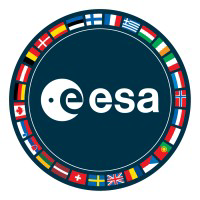
Location
ESTEC, Noordwijk, Netherlands
The Guidance, Navigation and Control (GNC) Systems Architecture Section provides functional support to ESA projects in the technical field of GNC systems for planetary exploration orbiters and landers, launch and transportation systems, re-entry vehicles, and new generation space vehicles for in-orbit servicing, in-orbit assembly, debris removal and specialised applications such as rendezvous and formation flying.
The GNC Systems Architecture Section carries out technological research in the domain of GNC systems for space vehicles including interplanetary cruise, aero assistance, precision landing, ascent, rendezvous and docking, re-entry, formation flying and drag-free systems. Special emphasis is placed on the following areas: autonomous and fault-tolerant systems (including health monitoring systems), advanced guidance, control, estimation and optimisation techniques and tools, and the technology development of GNC sensors with a focus on vision-based navigation and hybrid navigation concepts.
You are encouraged to visit the ESA website: https://www.esa.int/
The foundation of AOCS/GNC systems has traditionally relied on model-based techniques, which in turn, have their foundations in a solid body of mathematical proofs (such as guarantees of stability and robustness). The emergence of data-driven techniques (broadly grouped under the term “machine learning”) challenges the traditional foundations of controls and represents an alternative paradigm that cannot be ignored. The employment of machine learning techniques for guidance, navigation and control functions for increased autonomy on board with respect to environmental or modelling disturbances or mission-critical phases (also targeting performance improvement) is finding interest in the academic community and applied developments in industry. Recent studies have indicated interest in a reinforcement learning (RL)-based controller improving an a priori control performance, or in deep RL guidance compared to state-of-the-art successive convexification, where some improvements in the presence of plant/model mismatch could be shown. Further developments in the areas of use of machine learning are expected in the short term, in hybridisation with or as assistance for existing AOCS and GNC techniques.
You will have the opportunity to work on a variety of challenging space projects with an emphasis on deploying and implementing the developed machine learning for navigation, estimation and control concepts on space systems. Your areas of research will be tailored with those of the team in line with the Agency’s strategic directions and activities.
The research tasks will cover:
Result Orientation
Operational Efficiency
Fostering Cooperation
Relationship Management
Continuous Improvement
Forward Thinking
For more information, please refer to ESA Core Behavioural Competencies guidebook
You should have recently completed, or be close to completion of a PhD in a related technical or scientific discipline. Preference will be given to applications submitted by candidates within five years of receiving their PhD. In particular for this position, the following is required:
PhD in control systems and/or machine learning with a background in robust and embedded control, aerospace systems and physical modelling, as well as in artificial intelligence-related concepts, computer vision and numerical optimisation.
In addition to your CV and your motivation letter, please prepare a research proposal of no more than 5 pages. This proposal should be uploaded to the "additional documents" field of the "application information" section.
You should have:
You should also have good interpersonal and communication skills and should be able to work in a multi-cultural environment, both independently and as part of a team. Your motivation, overall professional perspective and career goals will also be explored during the later stages of the selection process.
The working languages of the Agency are English and French. A good knowledge of one of these is required. Knowledge of another Member State language would be an asset.
Diversity, Equity and Inclusiveness
ESA is an equal opportunity employer, committed to achieving diversity within the workforce and creating an inclusive working environment. We therefore welcome applications from all qualified candidates irrespective of gender, sexual orientation, ethnicity, beliefs, age, disability or other characteristics. Applications from women are encouraged.
At the Agency we value diversity, and we welcome people with disabilities. Whenever possible, we seek to accommodate individuals with disabilities by providing the necessary support at the workplace. The Human Resources Department can also provide assistance during the recruitment process. If you would like to discuss this further, please contact us via email at [email protected].
Important Information and Disclaimer
Applicants must be eligible to access information, technology, and hardware which is subject to European or US export control and sanctions regulations.
During the recruitment process, the Agency may request applicants to undergo selection tests. Additionally, successful candidates will need to undergo basic screening before appointment, which will be conducted by an external background screening service, in compliance with the European Space Agency's security procedures.
The information published on ESA’s careers website regarding working conditions is correct at the time of publication. It is not intended to be exhaustive and may not address all questions you would have.
Nationality and Languages
Please note that applications can only be considered from nationals of one of the following States: Austria, Belgium, Czechia, Denmark, Estonia, Finland, France, Germany, Greece, Hungary, Ireland, Italy, Luxembourg, the Netherlands, Norway, Poland, Portugal, Romania, Slovenia, Spain, Sweden, Switzerland, and the United Kingdom. Nationals from Latvia, Lithuania and Slovakia, as Associate Member States, or Canada as a Cooperating State, can apply as well as those from Bulgaria, Croatia, Cyprus and Malta as European Cooperating States (ECS).
According to the ESA Convention, the recruitment of staff must take into account an adequate distribution of posts among nationals of the ESA Member States*. When short-listing for an interview, priority will first be given to internal candidates and secondly to external candidates from under-represented Member States*.
The working languages of the Agency are English and French. A good knowledge of one of these is required. Knowledge of another Member State language would be an asset.
*Member States, Associate Members or Cooperating States.
Noordwijk, NL